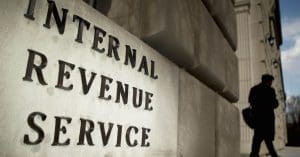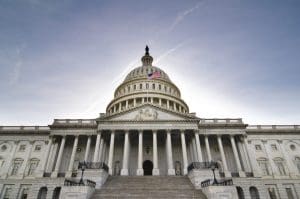The economic crisis caused by the coronavirus pandemic poses a triple challenge for tax policy in the United States. Lawmakers are tasked with crafting a policy response that will accelerate the economic recovery, reduce the mounting deficit, and protect the most vulnerable.
To assist lawmakers in navigating the challenge, and to help the American public understand the tax changes being proposed, the Tax Foundation’s Center for Federal Tax Policy modeled how 70 potential changes to the tax code would affect the U.S. economy, distribution of the tax burden, and federal revenue.
In tax policy there is an ever-present trade-off among how much revenue a tax will raise, who bears the burden of a tax, and what impact a tax will have on economic growth. Armed with the information in our new book, Options for Reforming America’s Tax Code 2.0, policymakers can debate the relative merits and trade-offs of each option to improve the tax code in a post-pandemic world.

Lawmakers Concerned that Delay in Tax Filing Deadline Not Fully Understood
The U.S. Treasury Department has pushed the April 15 tax payment deadline to July 15. However, taxpayers still have to file their tax returns by the usual April 15 deadline.
3 min read
For Italian Banks: Converting Future Deductions to Present Tax Credits
During the coronavirus outbreak, Italy has been hit especially hard. Policymakers have introduced numerous measures to stem the spread of the virus and provide relief to businesses that are facing a severe downturn.
2 min readTax Policy to Bridge the Coronavirus-Induced Economic Slowdown
Tax policy can help by giving businesses current access to future tax “assets”—deductions and credits the businesses will be allowed or owed over time any way under current law—instead of making them wait.
5 min read
Tax Policy and Economic Downturns
The Great Recession provides some insight into how tax revenues declined during a deep recession. Across OECD countries, revenues fell by 11 percent from 2008 to 2009 with corporate income taxes seeing the steepest decline at 28 percent. Revenues from individual income taxes fell by 16 percent.
4 min read

How the Federal Government and the States Could Help Save Small Businesses Through Temporary UI Tax Adjustments
Governmental responses to the coronavirus outbreak will require creativity and flexibility—and one aspect of that may involve temporarily rethinking how we structure not only unemployment insurance (UI) benefits but also the taxes that pay for them.
5 min read
Senate Receives Final Version of House Coronavirus Bill Offering Paid Leave
The House bill would provide two weeks of paid sick leave to workers who must quarantine, take care of a family member who is sick with coronavirus, or care for their children whose school or daycare has closed due to the public health emergency.
2 min read
Tax Options for Economic Relief During the Coronavirus Crisis
Instead of simply reaching for fiscal stimulus with the goal of increasing economic activity, tax policy changes can give vulnerable individuals and businesses additional liquidity and space to survive the reduction in economic activity needed in light of the coronavirus outbreak.
5 min read
Taxes and Liquidity During an Economic Crisis
Taxes present one policy tool available to ease the impending liquidity crunch brought on by the coronavirus crisis, which policymakers are already pursuing by postponing the tax payment deadline and waiving interest and penalties.
3 min read
Summary of the OECD’s Impact Assessment on Pillar 1 and Pillar 2
The OECD presented its preliminary impact assessment on the Pillar 1 and Pillar 2 proposals. The impact assessment includes estimated revenue and investment effects presented at a country group level (low-, middle- and high-income countries and investment hubs). The OECD estimates global corporate income tax revenues to increase by 4 percent if both pillars get implemented, equaling $100 billion annually.
4 min read